Brian Robinson was 90 years-old on November 3rd – here at VeloVeritas we thought we should honour the great man’s anniversary by recalling a couple of interviews we did with him a year or two back.
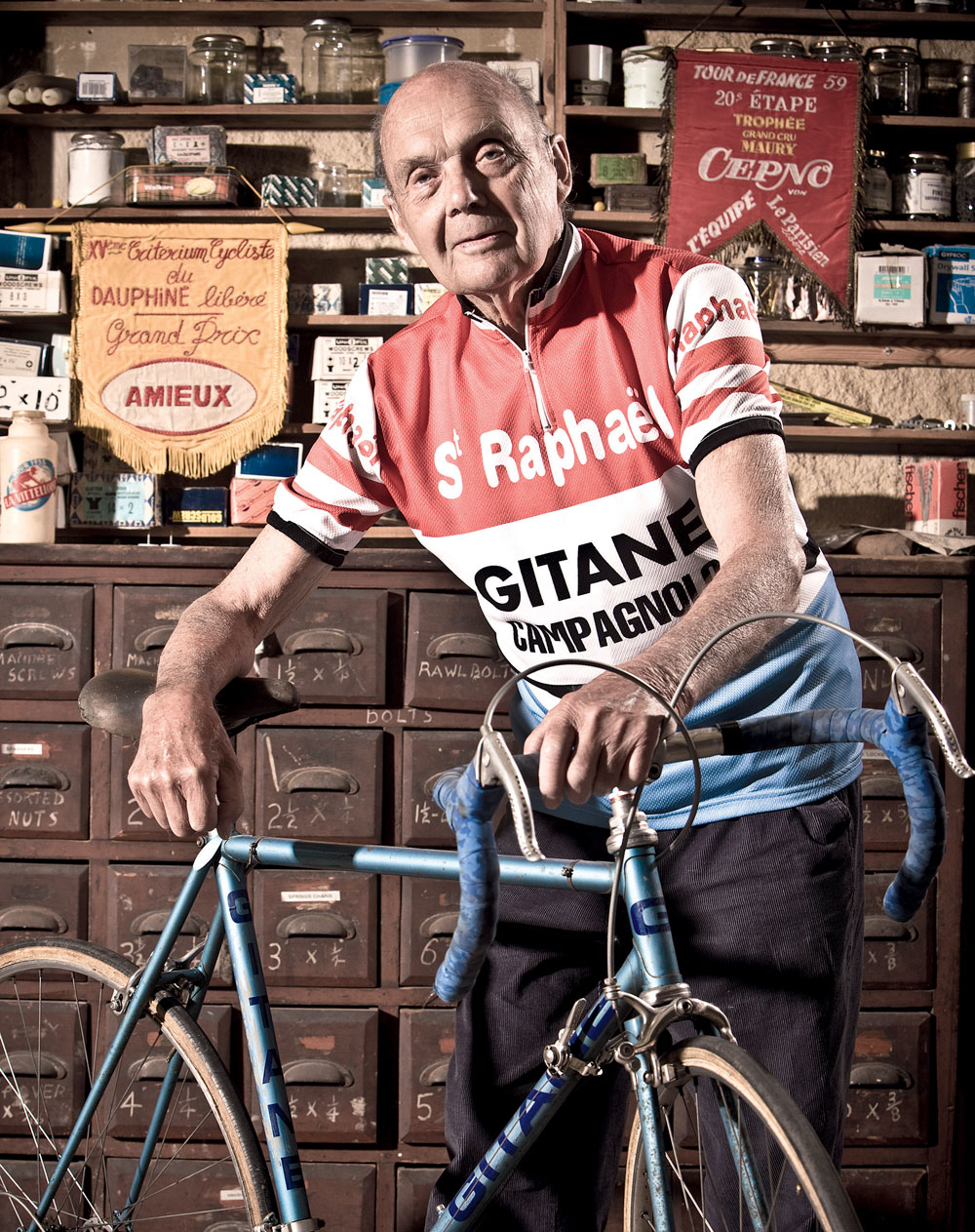
First up we discussed his historic ride in our favourite one day race, Milano-Sanremo.
‘If there had been the Poggio back then, they wouldn’t have seen me until the finish!”
So says Brian Robinson, who in 1957, became the first English-speaker to stand on the podium of the Primavera.
But for the cycling politics of the time, Robinson might well have pre-dated Tom Simpson as the first Englishman to win this legendary race, but let’s go back to ’57 and hear it from Brian…
“I was 27 and riding for St. Rapael/Gemiani which was the team I rode with for my whole career, albeit we had different bike sponsors.
“I had just ridden Paris-Nice, which is good training for Milan-San Remo and whilst I can’t remember my exact placings, I think I got second on a stage and was in the top ten overall.
“In other words, I was going as well as I ever had.
“Before the start, our manager said that he was trying to poach the Spanish sprinter, Miguel Poblet away from the team he was with at the time – Ignis and we should help Poblet if we could; he was even on a Geminiani bike.”
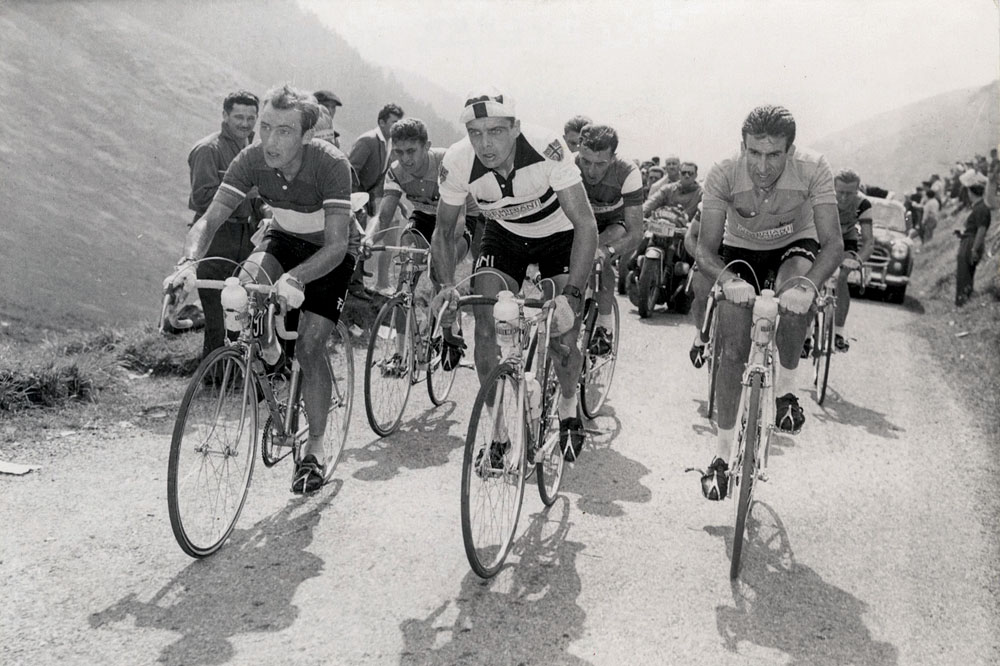
I asked Brian who was designated team leader for the race?
“The squad wasn’t structured like that, whoever was going best on the day was the protected rider; that was one of the things I liked about the team.
“I wasn’t really a classics man, but that was a race that suited me; nearly 300 kilometres and hilly.
“The parcours for the finale was very similar back then, but the Poggio wasn’t added until later.
“I attacked on the Capo Berta (one of the coastal climbs which helps mould the final result) and opened a gap.
“I was about 50 yards clear and behind me I heard Poblet yelling at me to wait.
“I did, and he got up to me, coming in to the finale there were three of us, the Belgian, Fred De Bruyne, who had won the Primavera in 1956 (De Bruyne was a very successful roadman-sprinter, he also won Liege-Bastogne-Liege, the Tour of Flanders, Paris-Roubaix and Paris-Tours) had come across to us.
“I was friendly with Poblet and asked him how we should play the sprint; he said that he wanted me to lead-out.
“That’s what I did, Poblet won and De Bruyne got round me too, so I was third – I wasn’t unhappy with that.’
“I asked if he had any regrets, it certainly sounded as if he had the legs to do better;
“I sometimes think that I should have played my own cards instead of playing them for someone else.
“If there had been a Poggio back then I would definitely have cleared-off and they wouldn’t have seen me again until the finish.
“But there were team orders at the time and you can’t turn the clock back, ironically though, the negotiations to get Poblet to join our squad came to nothing, so I should have ridden my own race!“
I enquired about the bikes of the day;
“My bike weighed 28 pounds – I wish I had the bike I ride now, back then.
“We always had good equipment so I was on Campagnolo gears and chainset, 46/52 I think, top gear was 52 x 14, only Anquetil rode a 53 ring.
“The team tyres were French Dourdognes, but I rode Clement 50’s for special races.
“I used to stock-up on them when I visited Italy, you could buy them cheaper there.”
I wondered if there were any souvenirs of that great day;
“No, that’s one regret I do have, we didn’t bother to keep trophies and mementos back then.”
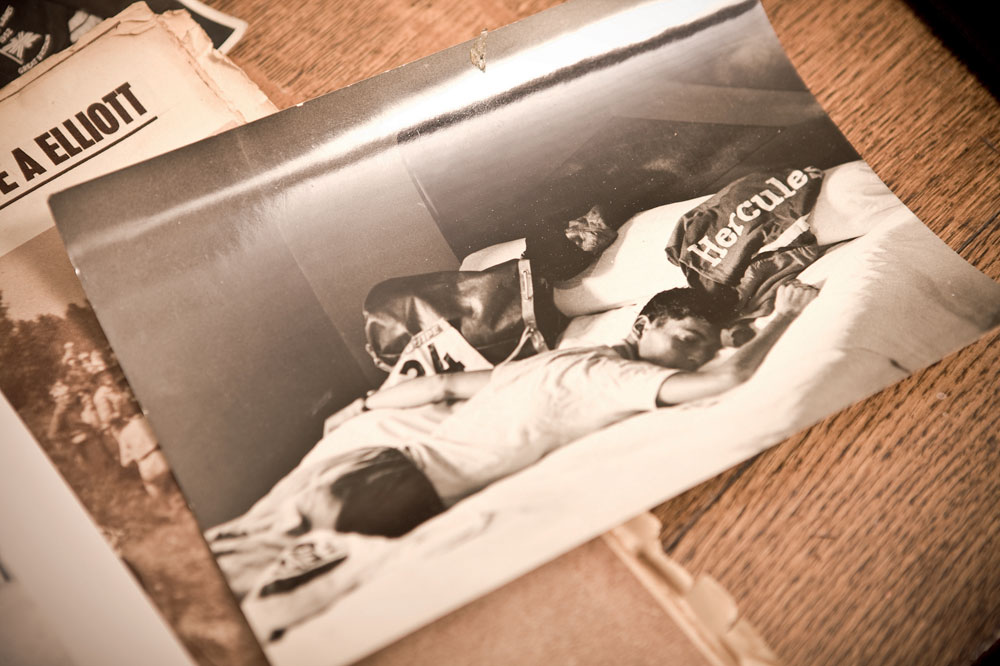
And, did I say that the morning I interviewed Brian, he had just done three hours on the bike?
Fifty years-on and he’s still turning those pedals; it’s just a shame that there was no Poggio in 1957.
We also got the opportunity to speak to Brian about his win in the Critérium du Dauphiné Libéré…
It must have been a good year for you, 1961 Brian?
“It was a good year for me, but it was also my last good year, the following year was the end of my career.”
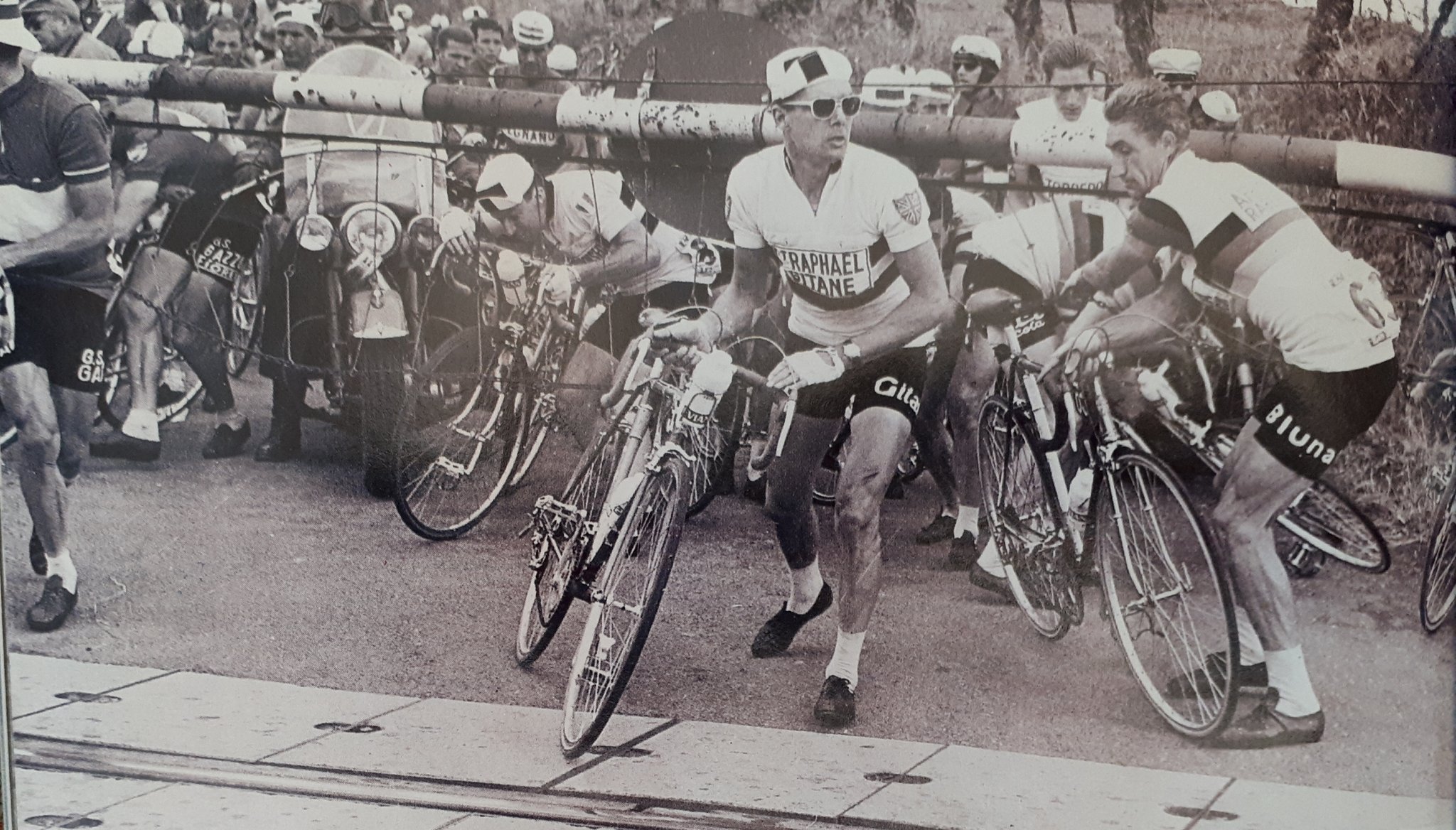
Did the Dauphiné have the same status, back then?
“Oh yes!
“That was back in the days of national teams in the Tour and it was an important selection race.
“The French would leave three or four places up for grabs and make the final selections depending on who had shown good form at the Dauphiné.
“Back then, it was the fourth most prestigious race in the world, in the pecking order it only came after the three Grand Tours.
“It was eight stages, if I remember, any more than that and it would have been too much before the Tour.”
Tell us about the parcours.
“It used to go over a lot of the big cols that the Tour climbed, like the Ventoux, but to be honest, I don’t remember the specifics of the route that year, although I think that there was a team time trial.
“One of the things that you regret after your pro career is over, is that you don’t keep specific records of all these things – and it was a long time ago!”
Do you remember the decisive moment in the race?
“Very well!
“We had the German rider, Rolf Wohlfsol on our Rapha squad.
“He had the jersey and my role was to be a ‘policeman,’ for him, going with any breaks.
“On stage three to Brest (from Saint Brieuc, 170 km) two guys cleared off, I went with them and the bunch wasn’t interested.
“I was sitting on and my Director Sportif came up and said that I shouldn’t impede the other two but I shouldn’t contribute much either.
“At the end we had 10 minutes and I won the stage – I had to!
“I also took the jersey, it was good tactics by our team.
“You might go with 20 attacks and none of them succeed, but then you get in one like that and it works out for you.”
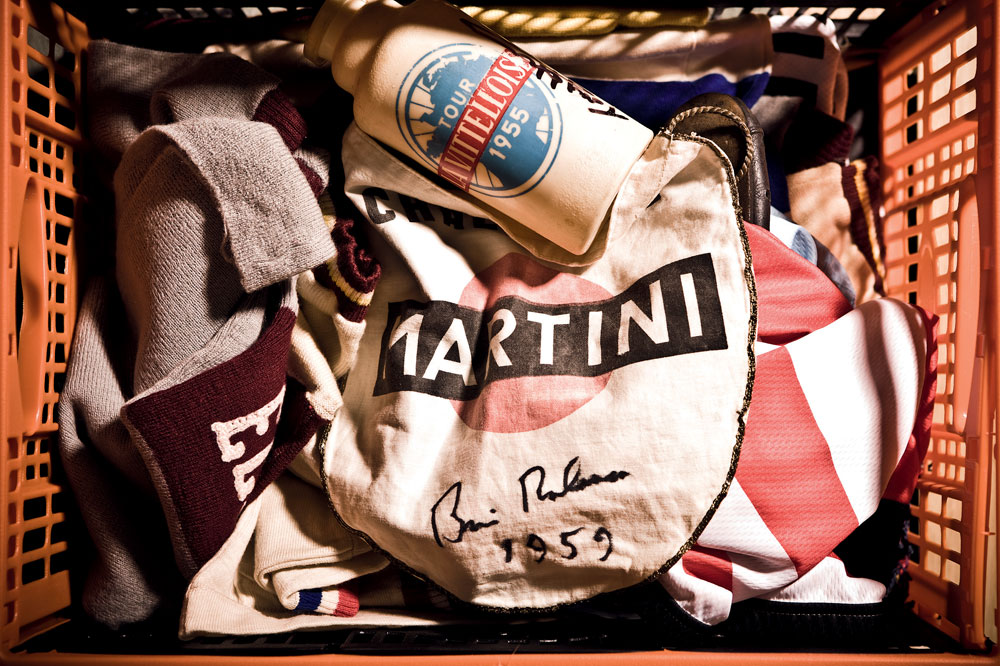
Any awkward moments?
“Not really, but my team mate Mastrotto attacked me to try and get a stage win.
“As I was saying, the Dauphine was a selection race for the Tour and Mastrotto wanted a place, so he charged off with another rider, who was also looking for selection.
“Mastrotto was a bit of a bulldozer – he just put his head down and went.
“My manager and I knew what he was doing, but he didn’t win the stage, so he wasn’t that popular with us!
“He did, however get his Tour place. (He would also win the Dauphine in 1962)
“Management attitude was different back then too.
“During all the years I raced as a pro, I never had a manager come to me and say; “you’ve got to do this!” They knew that we wanted to win – it was how you made your money!”
Did the team work well for you?
“The team was quite cosmopolitan, we had a Belgian, a Dutchman and a German and yes, they all worked well for me.
“It was the first time I’d had a team working for me – and of course they all wanted to make money!
“It wasn’t like it is these days – you could live off your wages, but real earnings came from your prize money.”
Do you think that you come out of the Dauphine flying or wasted?
“It depends on your shape and your attitude.
“I came out if it in good shape; if you were a more delicate rider than I was, then maybe it would drain you.
“But I liked the shorter stage races in May and June.
“I didn’t like one day races, I thrived on stage racing.
“The Dauphine is only eight days, it’s tough, but not so tough if you have good legs.
“It’s the poor souls who don’t have good form that struggle!”
It would be 22 years before another English speaker was to emulate Robinson and win the Dauphiné; an American called Greg Lemond – whatever happened to him?
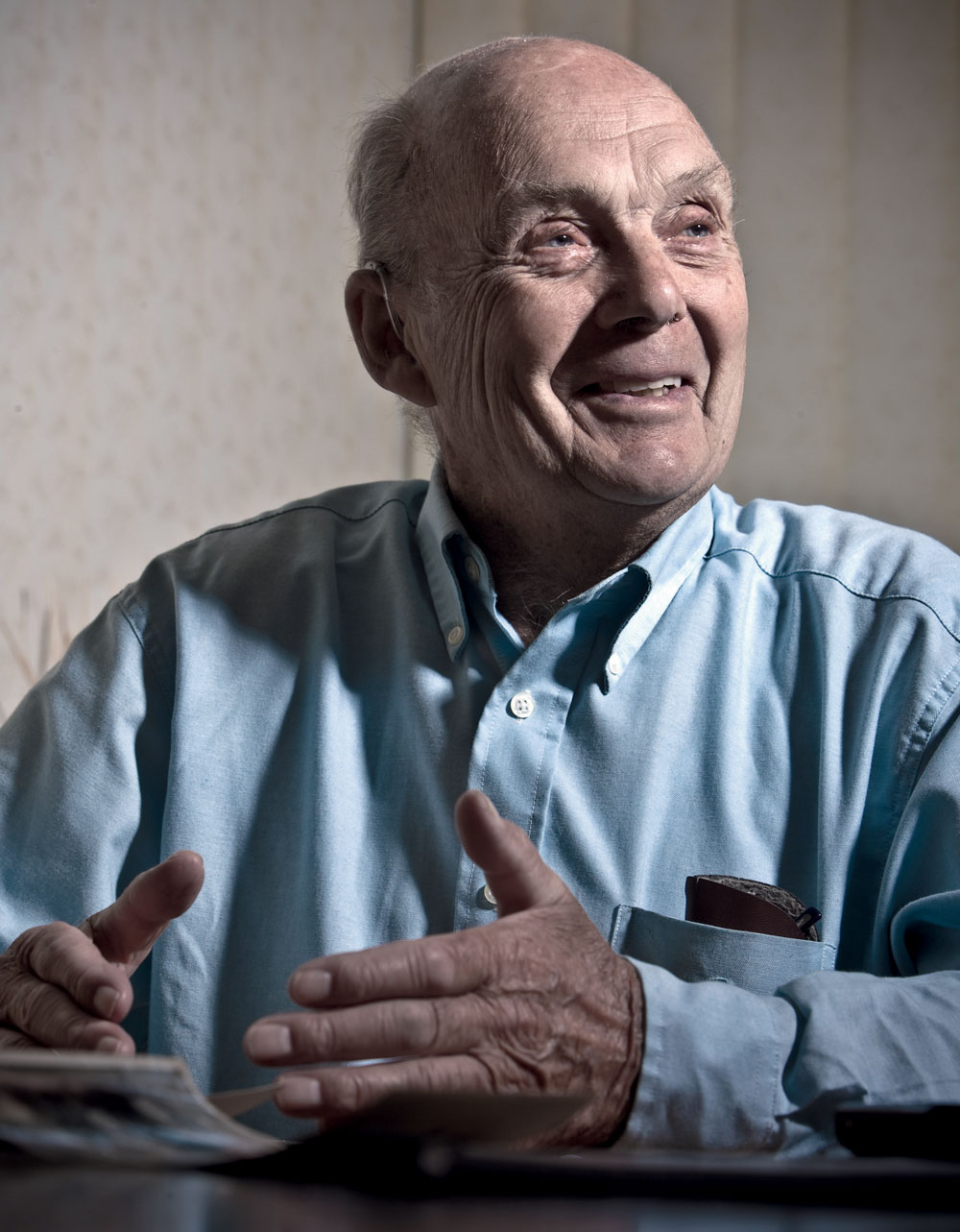
With thanks to Brian Robinson, it was a privilege to spend time speaking to a true legend of the sport.



